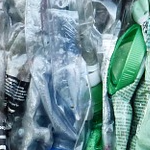SWANA Submits Comments on National Recycling Strategy

Urges EPA to continue and expand its active and visible role in recycling at the national level
Silver Spring, MD – The Solid Waste Association of North America (SWANA) has submitted comments on the U.S. Environmental Protection Agency’s (EPA) draft National Recycling Strategy. SWANA strongly supports EPA having an active and visible role at the national level to create a stronger, more resilient, and cost-effective U.S. municipal solid waste recycling system.
The strategy, when finalized, will be aligned with and support implementation of the new voluntary national recycling goal to increase the recycling rate to 50 percent by 2030. SWANA actively participated in EPA workgroups that led to the new national goal and the proposed National Recycling Strategy. SWANA previously submitted comments on the metrics associated with achieving that goal.
“SWANA believes that strong national leadership is needed to support local recycling systems and improve our recycling rate, and we are pleased by EPA’s actions,” stated David Biderman, SWANA Executive Director & CEO. “We believe EPA can play an even stronger role in catalyzing governmental and non-governmental action across the entire supply chain, including creating uniformity concerning measures and reducing reliance on the confusing resin identification codes for plastic. SWANA will continue to work with Agency leaders, including the Biden Administration’s appointees, to encourage such efforts,” he added.
The SWANA Core Advocacy Group and the Recycling Task Force led the association’s review of the draft strategy. Members recommend further coordination across federal agencies, the development of common recycling messaging, and addressing recycling label confusion, among other actions.
“This is an important benchmark in the history of recycling progress in the United States,” said Tim Flanagan, SWANA Vice President and General Manager, Monterey Regional Waste Management District. “Having a national strategy in a time of recycling challenges affirms SWANA’s commitment to move as a society towards ‘using waste as a resource.’”
EPA proposes three strategic objectives: 1) reduce contamination in the recycling stream, 2) increase processing efficiency, and 3) improve markets. The Strategy identifies actions to achieve these objectives that build on the collaborative efforts by stakeholders from across the recycling system that began under the National Framework for Advancing the U.S. Recycling System.
SWANA is encouraged by the convergence of several recent important milestones, including the passage of the Save Our Seas 2.0 bill last week by the U.S. Senate, which is now awaiting President Trump’s signature, and EPA’s announcement of the National Recycling Goal. Together with EPA’s draft recycling strategy, firming prices for most commodity grades, increased investment in recycling, and increased commitments from consumer brands and manufacturers, SWANA agrees with other industry observers that here is ample reason to be optimistic about the future of recycling in the United States.
To learn more about SWANA and SWANA’s recycling initiatives, visit https://swana.org/initiatives/recycling.
About SWANA
The Solid Waste Association of North America (SWANA) is an organization of more than 10,000 public and private sector professionals committed to advancing from solid waste management to resource management through their shared emphasis on education, advocacy, and research. For more than 60 years, SWANA has been the leading association in the solid waste management field. SWANA serves industry professionals through technical conferences, certifications, publications, and a large offering of technical training courses.
Media Contact
Kristyn OldendorfDirector of Public Policy
(240) 494-2237
marketing@swana.org






